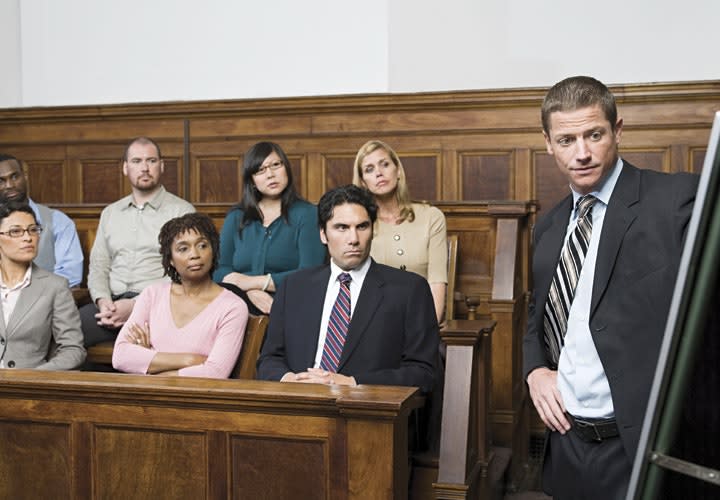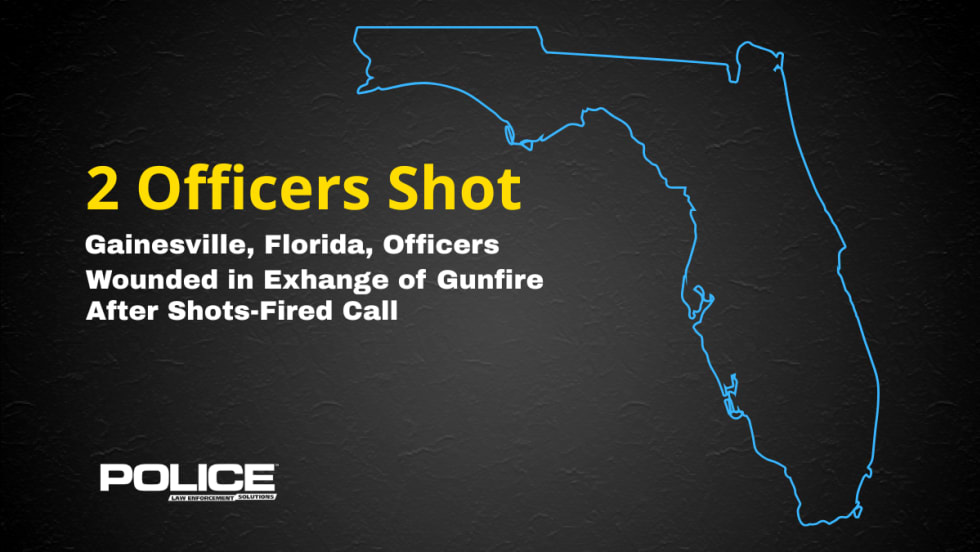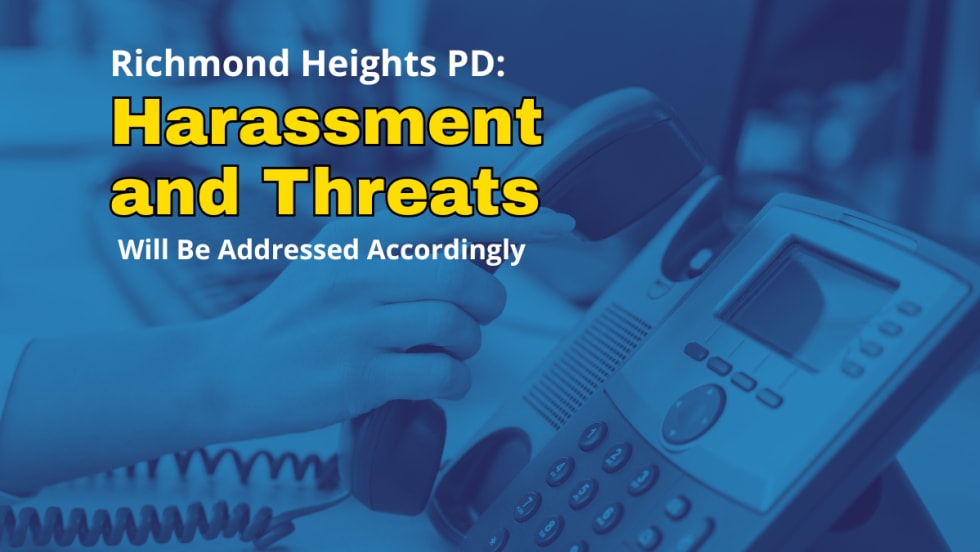Although the prosecutor's decision to decline to pursue a prosecution could be for a variety of reasons, there are steps you can take to ensure that a rejection is not based on your police work on the case.
You make an arrest, collect the evidence, write your crime and arrest reports, and take or send your case over to the prosecuting attorney, hoping the prosecutor sees fit to file criminal charges (or, in some jurisdictions, to present the case to a grand jury for charging). Sometimes charges are filed, and sometimes they're rejected. Although the prosecutor's decision to decline to pursue a prosecution could be for a variety of reasons, there are steps you can take to ensure that a rejection is not based on your police work on the case.
Why Do You Care?
As a cop, I frequently heard officers who got a "reject" from the prosecutor console themselves by saying, "I don't really care if they file or not. At least I took the guy off the street for a couple of days and I got his dope."
That won't be much consolation if the person turns around and sues you. But if charges are filed and the person pleads guilty or is convicted at trial, you'll have substantial protection against civil liability. The U.S. Supreme Court has held that no civil action may be maintained that is inconsistent with a final judgment of guilt arising from the same circumstances. (Heck v. Humphrey) This alone is sufficient reason for you to want to do your best to get charges filed in every case where the evidence supports a prosecution of someone you've arrested. Naturally, you also want to see criminals held accountable for their crimes, and not left at liberty to prey on other victims.
"Good Arrest" Doesn't Guarantee "Good Prosecution"
As you know, the law sets different standards for different official actions. A detention requires only reasonable suspicion, while an arrest requires the greater level of probable cause. Convictions must meet the highest standard—proof beyond a reasonable doubt. And whereas PC for arrest may be based on hearsay and other forms of inadmissible evidence, a conviction can only be based on evidence that is admissible in court.
This means the prosecutor has to meet a higher standard of proof, with more restricted evidence, than you do when you make an arrest. Therefore, it's possible you might have a perfectly valid arrest, but the admissible evidence might not be enough to convince a jury of the arrestee's guilt beyond a reasonable doubt. Arresting officers need to be mindful of "the difference between what is required to prove guilt in a criminal case and what is required to show probable cause for arrest." (Brinegar v. U.S.)
Prosecutors are ethically precluded from filing criminal charges unless there is a reasonable likelihood of successful prosecution, taking into account not only the proof of guilt but also evidence of any defenses, as well as evidentiary limitations on what can be presented to the jury. To enhance your chances of getting your cases filed, therefore, your goal when writing reports and presenting cases to the prosecutor should not be simply showing that you had PC to arrest, but establishing that there is a provable case for court. The prosecutor will file cases that look like winners, and will reject cases that look like losers.
Don't Put All Your Eggs in One Basket
This old maxim holds true for what you do. It's often a mistake to get so focused on the most serious crime the perpetrator committed that you neglect to cover lesser offenses.
Just because you're seeking robbery charges, for example, doesn't mean you should neglect to include in your booking reports and complaint requests all other crimes the robber may have committed—maybe burglary, theft, assault, trespass, and others. If for some reason the prosecutor determines there's no likelihood of a robbery conviction but there's a solid case on other charges, you get a filing instead of a reject, and you get a conviction on some charges, instead of a straight acquittal on a single robbery count that might lead to a lawsuit and a continuing threat to public safety.
A conscientious prosecutor will double-check that nothing has been overlooked before making a charging decision. This is because the Supreme Court has repeatedly held that neither the prosecutor nor the judge nor the jury is bound by your analysis of the facts underlying your arrest. In other words, even if you've mistakenly arrested for a crime that could not be prosecuted, the arrestee can still be charged with and convicted of other crimes you didn't identify or pursue. (Devenpeck v. Alford; Scott v. U.S.; Maryland v. Macon)
Instead of relying on the prosecutor's initiative to "save" your cases, one concrete change you can make is to expand the scope of your arrests, bookings, and charge requests to include all possible crimes the evidence would support charging.
Write Compelling Police Reports
Depending on how comprehensive your crime and arrest reports are, they will either leave the prosecutor no reasonable alternative but to file at least some of the charges you request, or they may furnish the prosecutor with reasons not to charge at all. A report that simply covers the most serious crime the perpetrator committed but neglects to address other offenses may invite the prosecutor to decline charges if there is a perceived problem with proving that single crime.
Instead, it's best to write a report that covers the elements of every crime shown by the evidence. The potential for proving at least one charge out of several against a defendant increases the probability the prosecutor will see the case as a winner, and will issue charges (or take the case to the grand jury, as appropriate). Write the report as if you want charges filed on every provable crime.
Also, be sure to justify every search and seizure, and to show the foundation for every confession (such as voluntariness and Miranda compliance or exception). Prosecutors may zero in on exclusionary issues and declare a search-and-seizure or Miranda problem to be a sufficient reason not to charge the case.
Seek Confessions in All Cases
Unfortunately, it's all too common to see an arrest report that covers the physical evidence and the statements of witnesses, but completely ignores the most convincing evidence of guilt—the suspect's own confession. It won't always be possible to obtain a confession, of course, but your reports should show that you always try. Whether the crime is driving under the influence or mass murder, you haven't completed your investigation until you've made an effort to take a confession.
As the Supreme Court has repeatedly noted, "A confession is like no other evidence. The defendant's own confession is probably the most probative and damaging evidence that can be admitted against him." (Arizona v. Fulminante) The prosecutor knows this, too, and is more likely to file a case that comes with an admissible confession than one that doesn't.
Talk It Over
If you do get a reject, call or visit the prosecutor to find out if some additional investigation or supplemental reports would make the case chargeable. Anything you learn about the holes your prosecutor finds in your cases will help you ensure you plug those holes next time.
Devallis Rutledge is a former police officer and veteran prosecutor who currently serves as special counsel to the Los Angeles County district attorney. He is the author of a dozen books.













